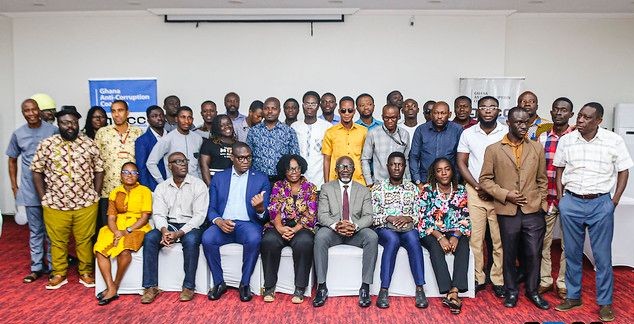The Ghana Audit Service has reaffirmed its commitment to work with the media in the fight against corruption in public sector institutions, stressing that accountability can only be achieved through a multi-stakeholder approach with the vigorous involvement of journalists.
The Assistant Director of Audit and Information Officer at the Service, Frederick Lokko, said journalists must have a sound understanding of the Auditor-General’s Report and the role of the Service to enable them to effectively analyse and communicate the findings to the public.
He was speaking at a training workshop for 46 selected journalists from the southern sector of the country on the 2024 Auditor-General’s Report.
The two-day workshop, organised by the Ghana Anti-Corruption Coalition, was held under the theme “Building Evidence for Increased Accountability in Ghana through a Multi-Stakeholder Accountability Initiative.”
Mr Lokko cautioned that erroneous reportage on the Auditor-General’s Report could cause unnecessary chaos rather than bring clarity to governance issues. He said the Service was ready to engage with the media to simplify its findings in plain language for public consumption.
He also reminded participants that the Audit Service does not have prosecutorial powers. “Our mission is to promote good governance, transparency, accountability and probity in Ghana’s public financial management system by auditing according to international standards and reporting our audit results and recommendations to Parliament,” Mr Lokko explained.
Highlighting the importance of careful reporting, he noted that certain financial irregularities cited in the Auditor-General’s Report did not necessarily mean that monies had been stolen or lost. In some cases, it could simply indicate that due processes were not followed in revenue mobilisation, or that there had been delays in procedures. “In such instances, we need cautious reporting on the issue by the media to keep the public well informed,” he added.
Mr Lokko also urged metropolitan, municipal and district assemblies to follow due process in optimising and mobilising revenue effectively.
Assistant Auditor-General, Patrick James Neequaye, encouraged journalists to specialise in particular aspects of the Auditor-General’s Report to provide more detailed and accurate analysis of its data and systems. He said building partnerships at regional, national, and international levels could strengthen this effort.
The participants were taken through practical sessions on topics including “Using the Auditor-General’s Report for Accountability and Identifying Investigative Leads,” “Practical Tips for Translating Audit Data into Compelling Journalism,” and “Investigative Skills and Techniques – A Practical Approach.”

